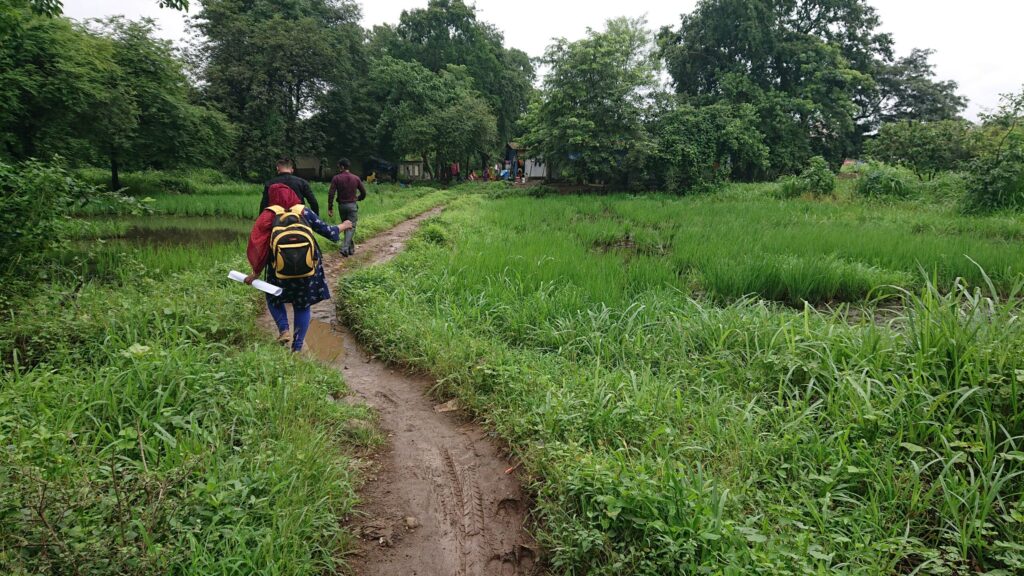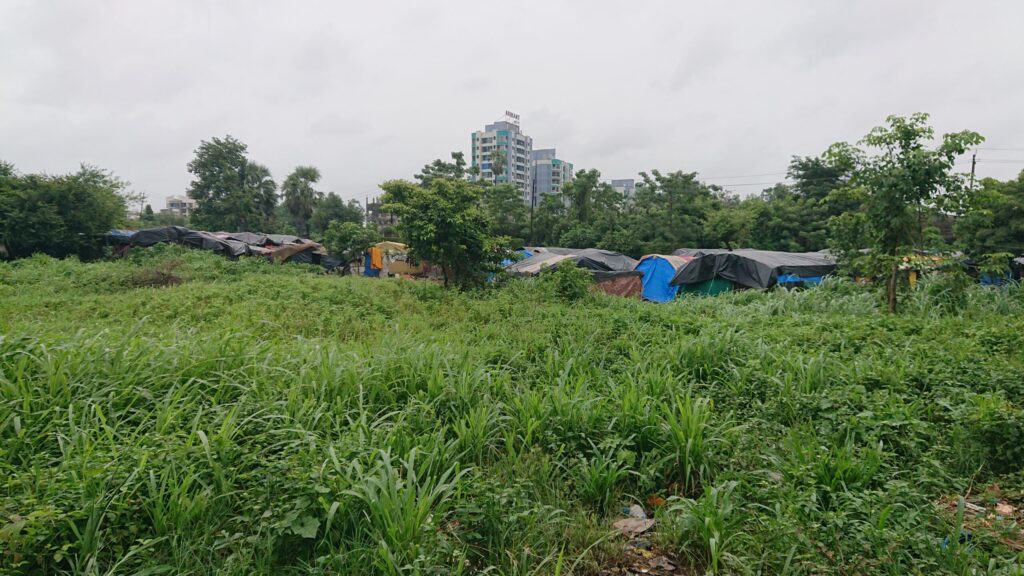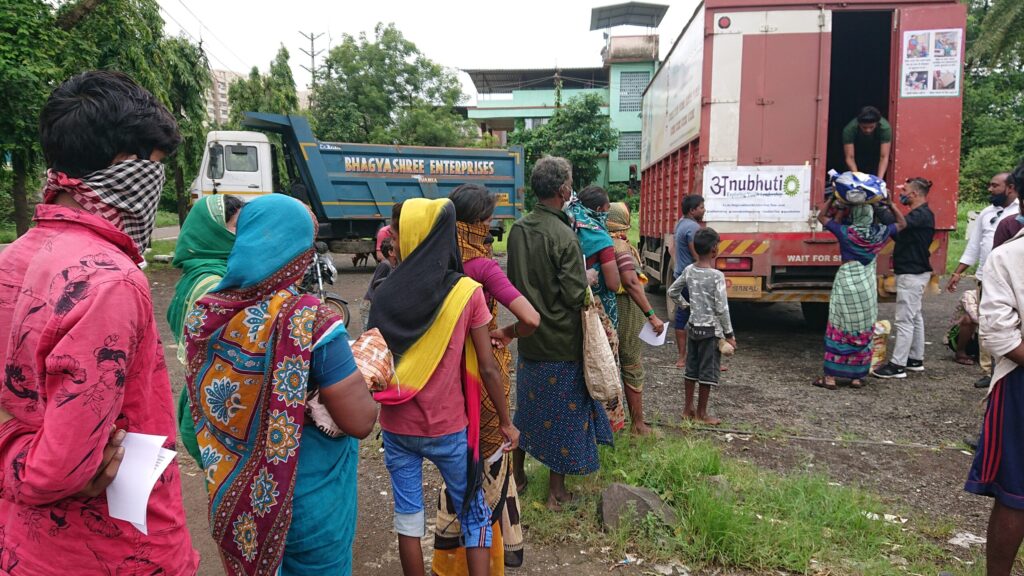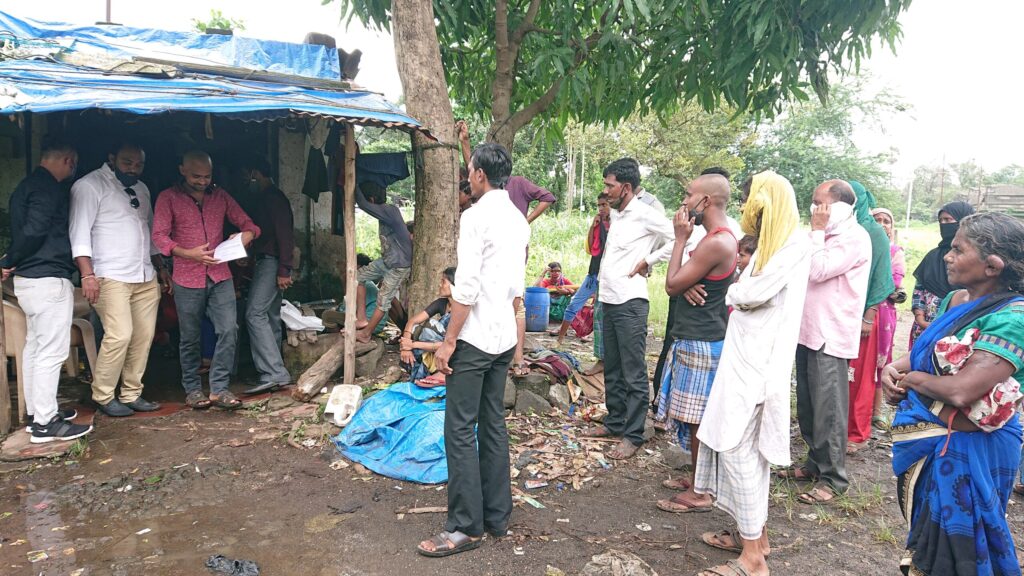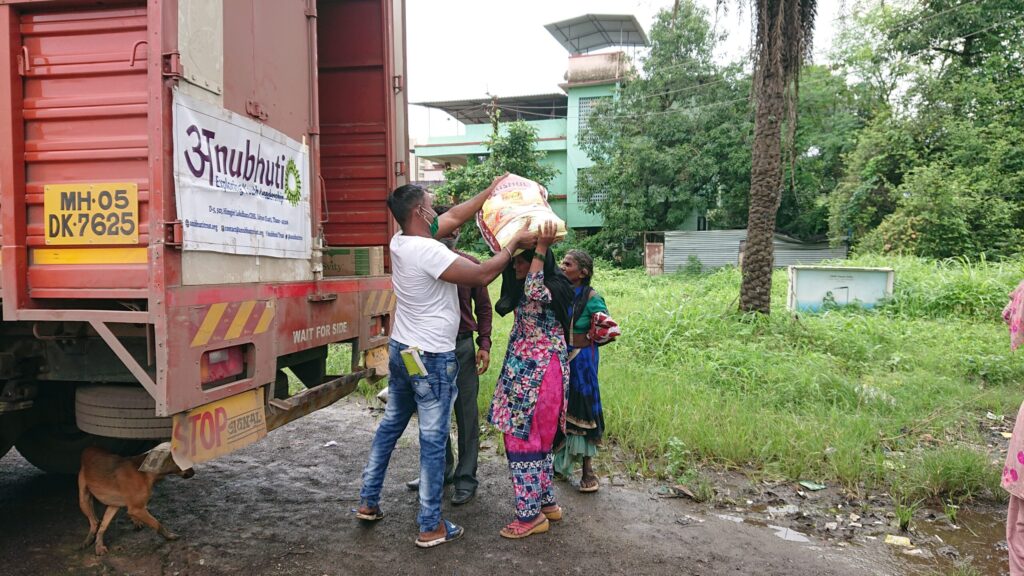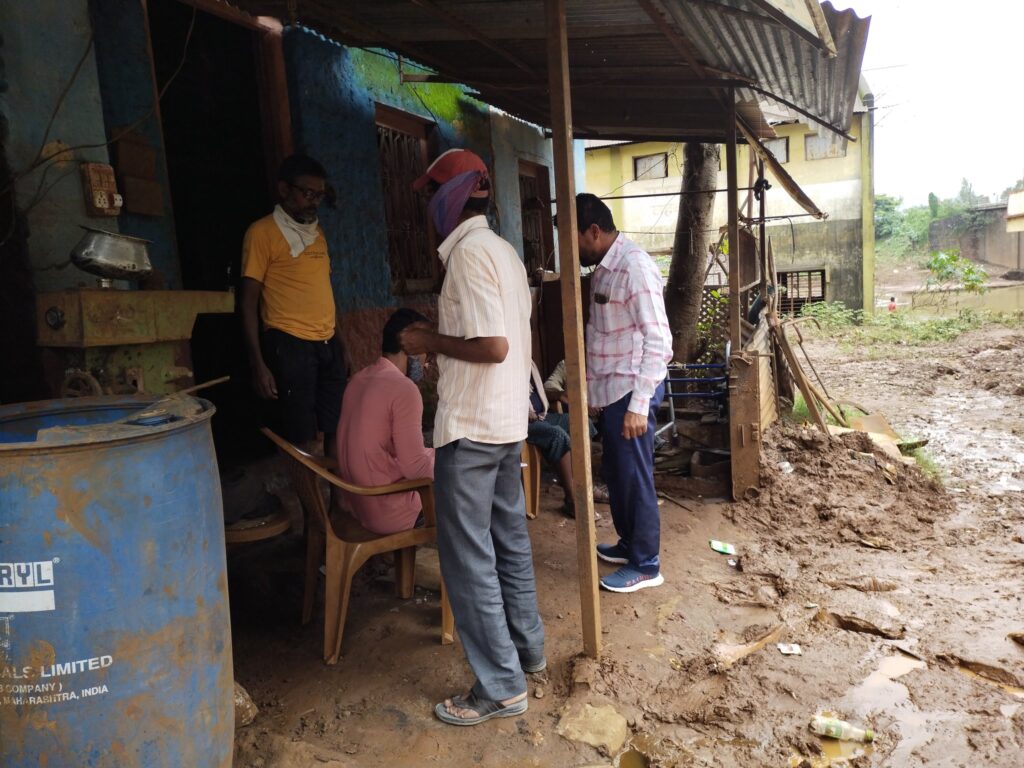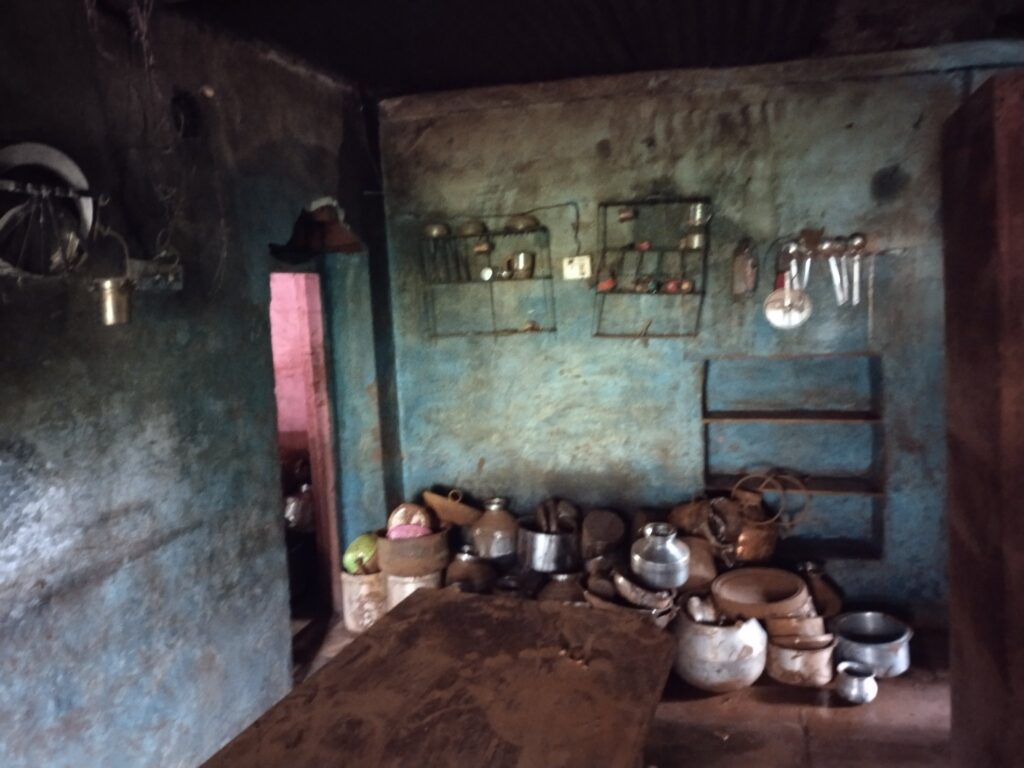As rains and flooding lashed western Maharashtra, the worst affected have been Nomadic & Denotified families (NT-DNTs). They live on the most risky land – marshy land, banks of rivers, base and slope of hills, undeveloped land, near forests, among high grasses and bushes. This makes them much more vulnerable to natural disasters like floods, earthquakes. In short, more severe impact of disasters on NT-DNTs is directly connected to their landlessness – made so forcefully first by colonial British and then by continued violent discrimination even after Indian Independance due to being falsely labelled as ‘criminals’.
When the team visited a NT-DNT settlement in Bhiwandi, this landlessness – due to which they are literally and socially on the outskirts of even the poorest – was witnessed. Bhiwandi is a suburb of the town of Kalyan, in Thane District. Development here is lagging behind better known towns like Kalyan and Dombivali (themselves again seen to be faraway suburbs of Mumbai city). Traveling outside the well-traversed roads of this suburb, the team reached a spot which is mostly marshy land and bogs. There were chawls that very poor families had built on this land, and most of the team felt that we had finally reached the spot where we were to carry out ration distribution. However, one in the team who is himself NT, kept walking, jumping over grass, puddles and completely muddy land – not even pathways visible. As the team followed for almost 5 minutes, we finally realized that there were tents made of bamboo and plastic, that had been put up further away from the chawls, in the middle of inaccessible grassy marshes. This little journey drove home the fact of how NT-DNTs are removed by many layers from the mainstream. Firstly, Bhiwandi itself is under-developed. Then, one has to travel to outside its usual borders to find these settlements. Even here, where only the poorest would set up their homes, NT-DNTs are living even further off, where literally the eye cannot even pick out the homes from a distance. This reality, is closely tied to every single aspect of their lives – from access to education, to health, to safety, to food, and now, to relief. How will these people reach any relief effort, if they are physically living so far away, and in such an inaccessible place?
The team traveled to Mahad and other flood stricken areas of Maharashtra and found utter destruction among NT-DNT families. In one spot, the team could meet only 20 of the more than 200 NT-DNT families who had lost everything in the floods. This is because, the rest had left to work as labour – to clean the muck and dirt in homes of other flood affected persons. These latter are also very poor, but NT-DNTs are so severely poor, that starvation is driving them to take up these and other degrading jobs. This is only one story of many – highlighting the more severe impact of every disaster on NT-DNTs, without any awareness about or response to their plight from settled communities, civil society or even the government. The team simply distributed cash, because the reality was such that questions of whether to give ration or other materials, paled in comparison to their immediate needs.
It was found that, to avail of government benefits or relief package, the usual procedure is a panchnama that is required to prove the existence of the homes. However, the concept of a house with four walls, is far removed from the reality of NT-DNT homes. Their homes are tents, or simply two plastic sheets held together by a bamboo pole. The process of panchnama cannot possibly respond to NT-DNT realities, which is why these poorest of the poor, are not eligible for disaster relief. Many people shared how they would follow the official around, requesting and trying to explain to them about their homes, but they would simply not understand and even shout at them to go away.
One woman, of Gadiya Lohar (ironsmith) community, who is also a single woman, shared how she had saved for years to put together a house costing around Rs.30000. These were literally her entire life’s savings, which she had put together through massive struggle. Within a few months, the flood struck and her home was destroyed. She does not possess any documents, which is true for most NT-DNTs because of their nomadic lifestyle. So she could not prove her residence and is not eligible for government assistance.
We request for any support possible: https://www.ketto.org/fundraiser/flood-relief-in-maharashtra
These stories do not do justice to the mental distress, the indignity that NT-DNT persons are having to endure, in face of prolonged and constant disasters. The struggles of entire generations, entire lifetimes are getting put to waste. However, very few outside of the communities are even aware of them and their unique realities, much less are responding in this period of emergency.

